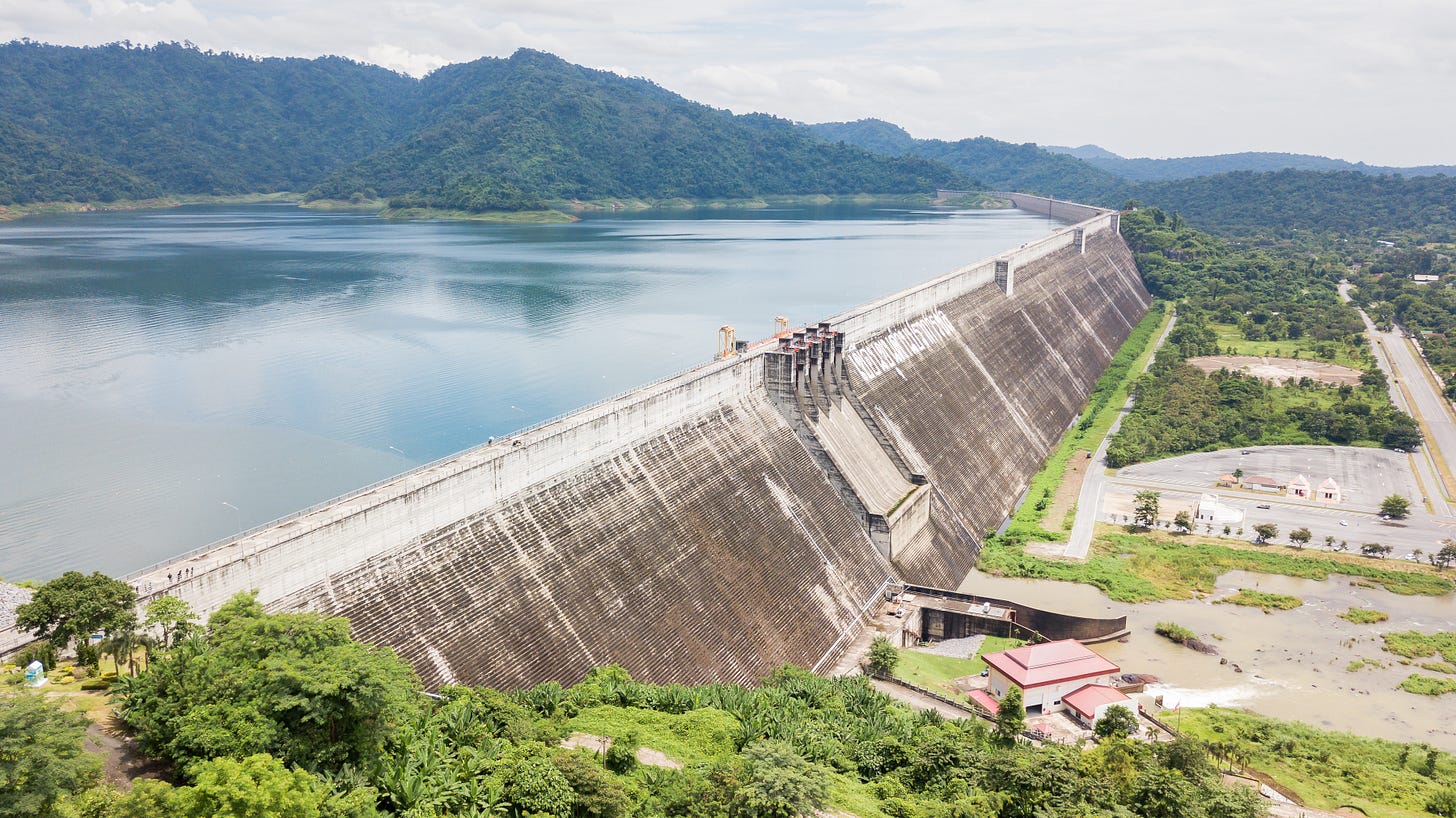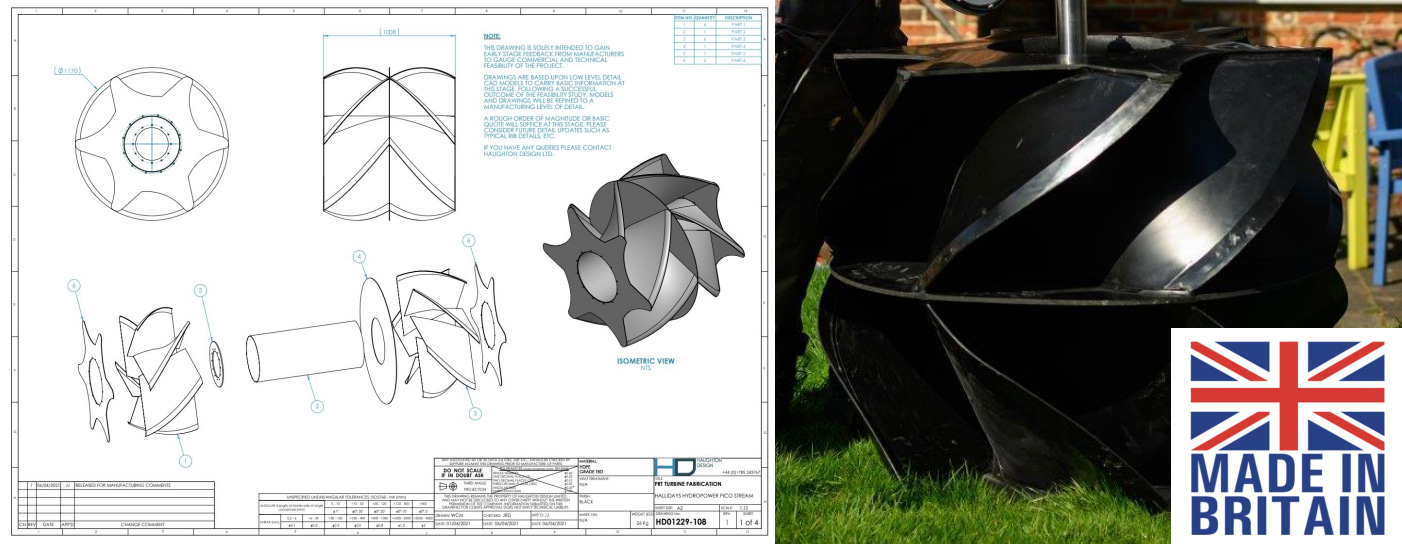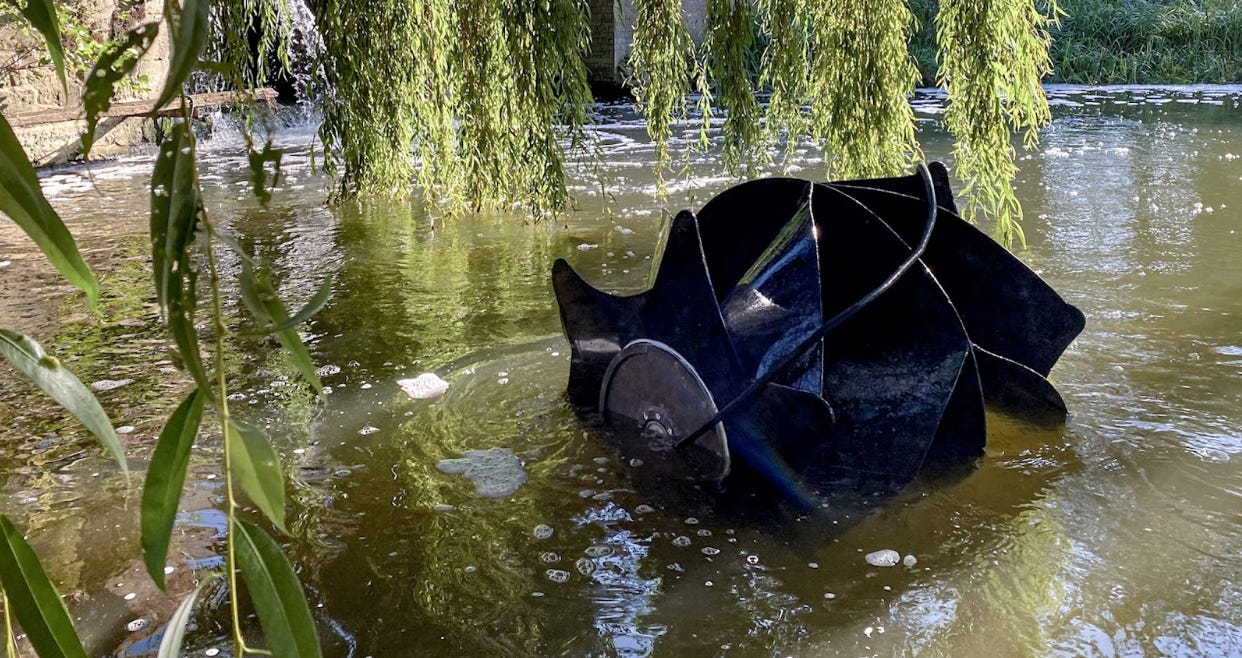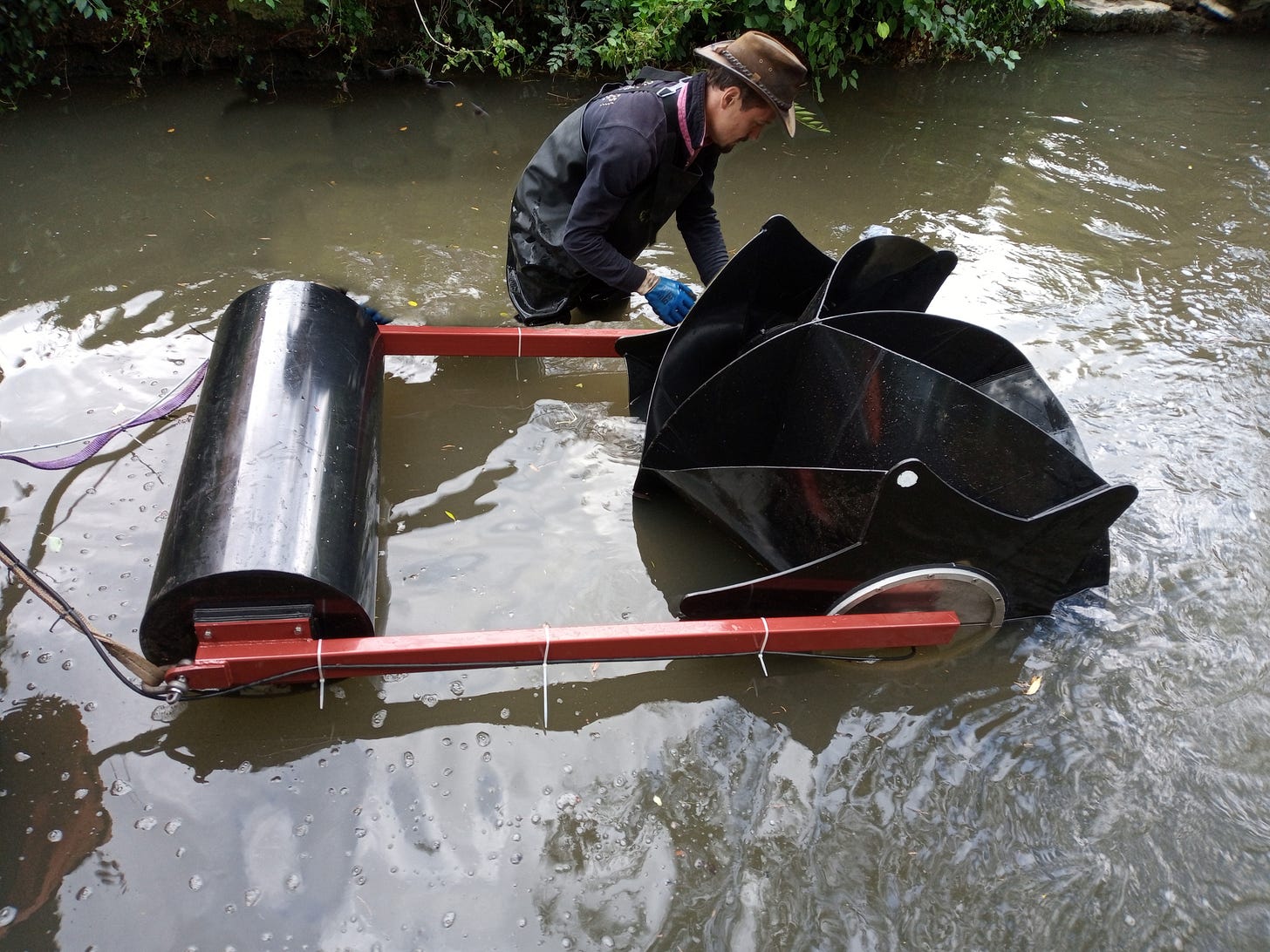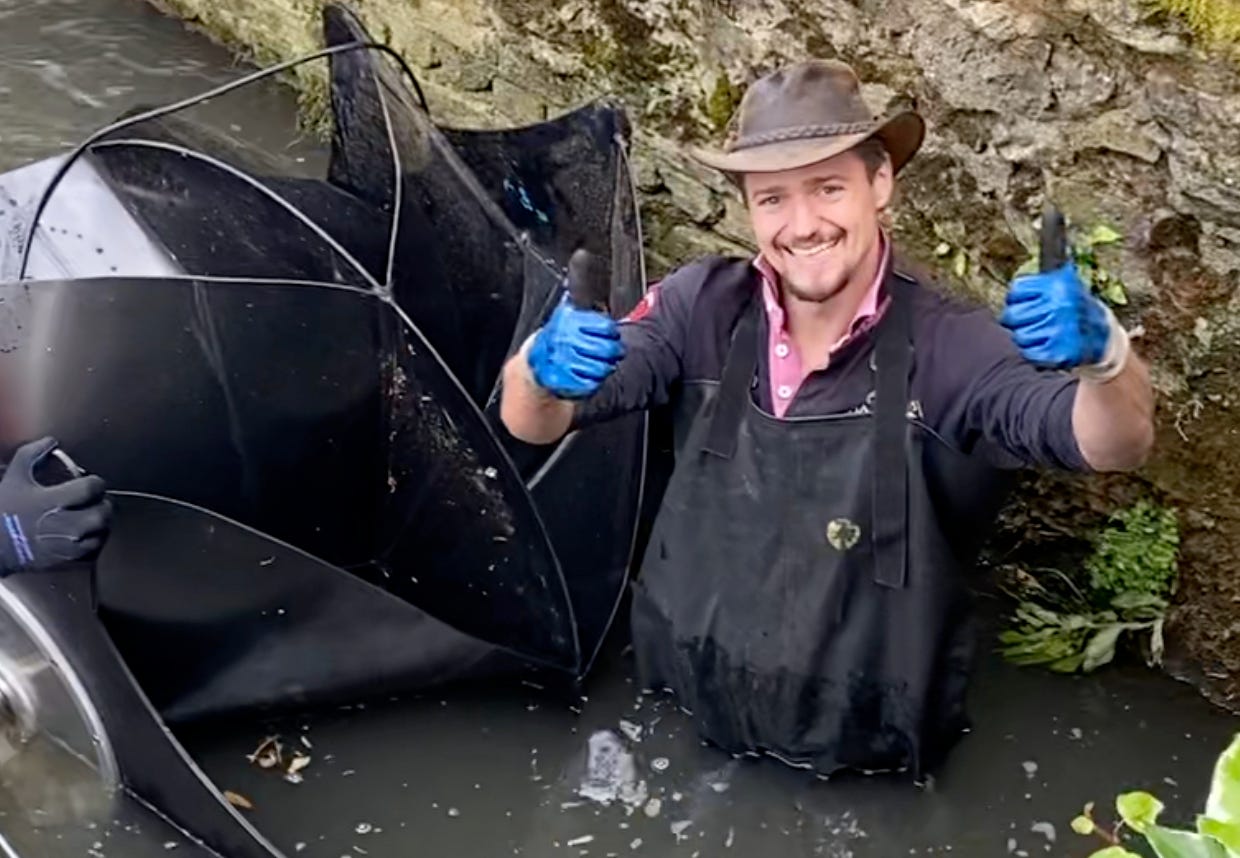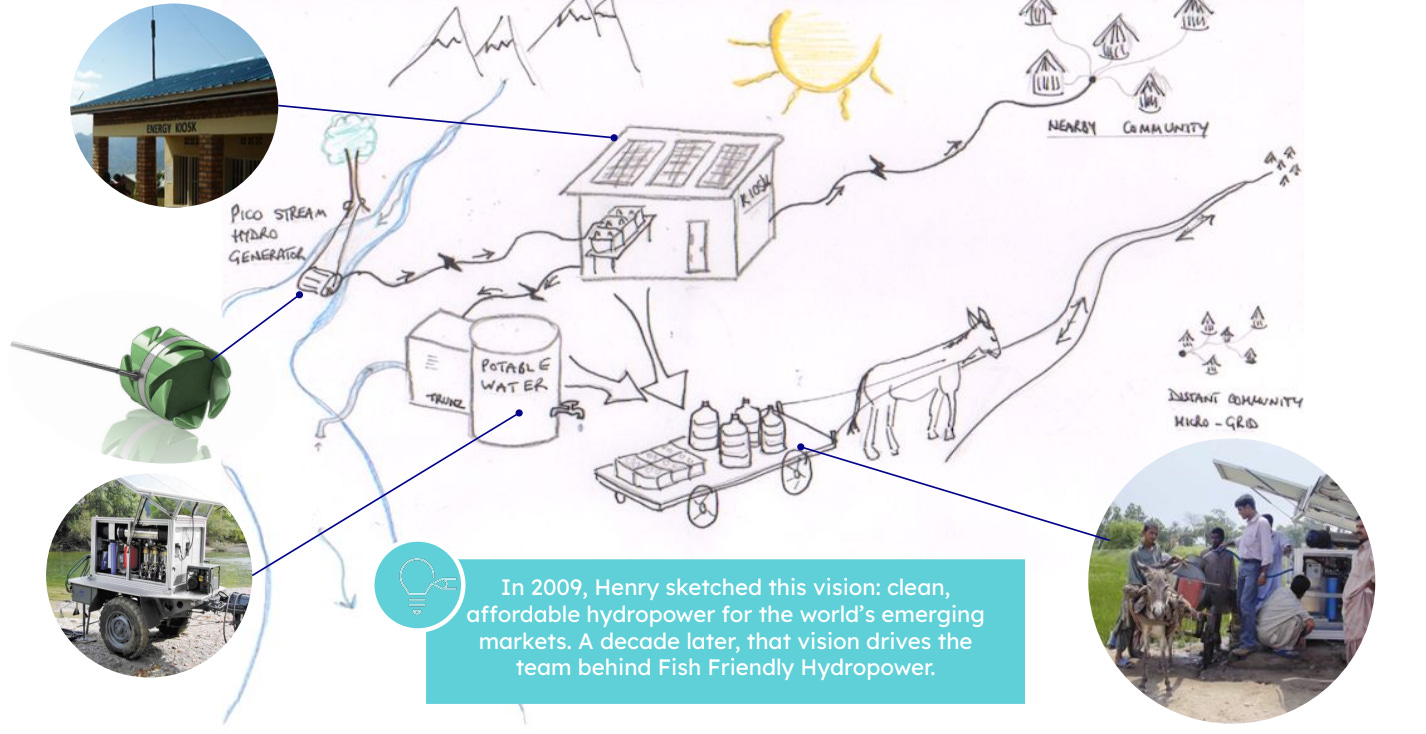#72 Fish Friendly Hydro
Affordable, hassle-free turbines for every stream
Read time: 5 minutes
Hi, I’m Javi Gascón.
This is Climate Tech Distillery, a newsletter where I talk about one specific climate tech company every week.
Today we’ll distill a company that’s revolutionizing hydropower with its portable, floating, recyclable, fish-friendly hydropower generators: Fish Friendly Hydro Co. 🇬🇧
Want to sponsor Climate Tech Distillery? Here’s all the info.
What Problem Does FFH Tackle❓
Despite being the world’s most used source of clean energy, traditional hydropower has significant hidden environmental and social costs:
1. Cost and Time: £100,000-£200,000 for small UK installations. All the paperwork and engineering works mean it can take years before a project is operational. The high upfront cost incentivizes maximum water extraction, making it financially and politically difficult to remove ecologically damaging infrastructure.
2. Fish Mortality and Migration Barriers: Traditional hydropower turbines kill or injure fish through blade strikes and pressure changes, while dams act as physical barriers that block critical migration routes for salmon, eels, and other species.
3. Disrupted River Flow and Hydrology: Conventional dams replace natural river variability with artificial surges based on energy demand, washing away fish eggs, and disrupting spawning cycles. Water can be diverted for up to 93% of a river's length.
4. Sediment and Water Quality Issues: Dams trap sediment upstream while creating "hungry water" downstream that erodes riverbeds. They also alter oxygen levels, water temperature, and nutrient flow, degrading overall water quality.
5. Regulatory Conflicts: Environmental regulations often force operators to choose between generating power and protecting river health, creating complex and costly mitigation requirements that pit economics against ecology.
Product / Service 📦
FFH’s flagship product, the PicoStream Turbine, is awesome for many reasons.
These are just a few:
Performance: Each small turbine generates enough electricity to power 2-3 UK homes or provide LED lighting for 600 households in developing regions. It operates 24/7 with a Levelized Cost of Energy of just 3.9 cents/kWh over 20 years (solar = 7.5 cents/kWh conventional hydro = 10.5 cents /kWh).
Convenience: Light beer barrel-sized units that can be dropped into flowing water, tethered to the bank, and connected in minutes. Minimal moving parts mean low maintenance costs that local communities can handle themselves.
Cost and Time: Several orders of magnitude cheaper than traditional hydro projects. Offers 6-8 year payback periods in UK scenarios, with even faster returns in developing regions replacing expensive diesel generators. No annoying paperwork and long construction time. It’s up and running in minutes, not years.
Versatility: Thanks to its modular design, it can scale from single household use to small community applications. Multiple units can be deployed together to increase output. The turbines can be installed in small streams but also on bigger rivers.
Nature Impact: It leaves over 80% of the river cross-section open for natural flow. On top of that, it achieves 100% fish survival rates through gentle polymer fins, while preserving natural river hydrology and sediment flow.
Sustainability: Built with 50% recycled materials and 100% recyclable design. Future versions will potentially use recycled bottle tops harvested from rivers and oceans. The turbines reduces reliance on heavy batteries and noisy, polluting diesel generators.
Market 🌐
1.1 billion people globally lack access to energy and most live close to small water streams. In those places traditional hydro isn’t viable, and solar and wind are too expensive and high-maintenance.
The market is expanding as countries increase renewable energy shares in their power generation mix and improve rural electrification. $220bn market in off-grid electrification by 2030.
And this aligns perfectly with the EU’s goal to restore 25,000 km of free-flowing rivers by 2030 through its dam-free design.
Other Key Players
Natel Energy 🇺🇸: Designs fish-safe hydropower turbines that enable safe fish passage and minimize ecological disruption, with operational projects in the U.S. and Europe.
Turbulent 🇧🇪: Develops snail-shaped "fish-friendly" systems and brings clean, reliable renewable energy to remote locations where hydropower was never viable before.
Founding Story 🦄
FFH was founded in 2021 by Henry Reily-Collins. An engineer with 18+ years of experience in the traditional hydro sector who’s always been an inventor. He has won 11 sustainability awards for his work in renewables and he has seen the problems of the hydropower sector first hand.
His vision was clear: bring 24/7 clean energy to underserved communities globally and contribute to UK renewable targets. He combined his strong technical background with this goal and created the PicoStream Turbine.
FFH has already patented their technology and completed several successful deployments in the UK. They have also received support and awards from all sorts of European institutions. They are now looking for funding to scale their production and to reach other markets where the tech is more needed by people without access to electricity.
Top Impact Stats 📈
1. A hypothetical deployment of three 2 kW PicoStream turbines in Uganda could save £20,000/year in diesel costs and offset 45 tonnes of CO2 annually.
2. 178 million kms of flowing water worldwide could potentially host PicoStream turbines.
3. 48% cheaper than solar, 63% cheaper than traditional hydro, gets deployed in minutes and has 0 impact on river ecosystems and fish.
Whenever you’re ready, there are 2 ways I can help you:
Scale and optimize your climate business: I build low-code automation systems for climate companies so they can free up time to scale their revenues and their climate impact.
Give visibility to your climate company: Get your company in front of an audience of thousands of climate players and enthusiasts by sponsoring newsletter issues and LinkedIn posts.
Thanks for reading today’s issue! If you liked it feel free to hit the ❤️ button and share it with someone who might like it too. See you next Saturday :)




